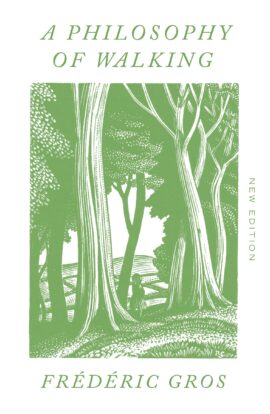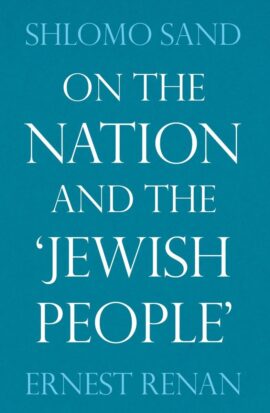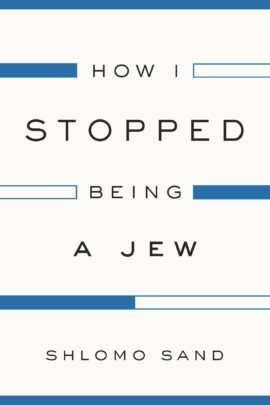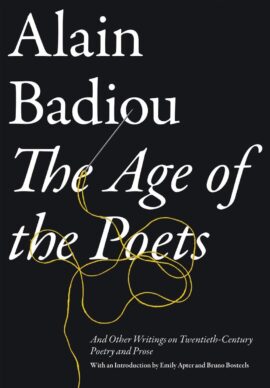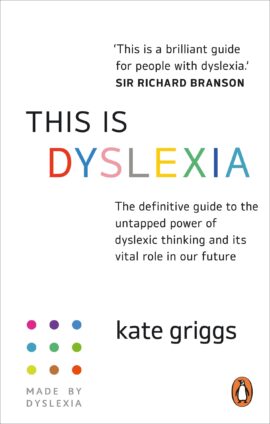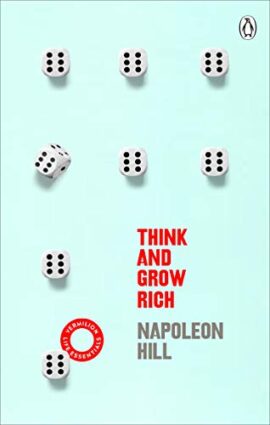Affichage de 529–540 sur 1221 résultatsTrié par popularité
Seven Signs of Life
I have walked in and out of the lives of countless numbers of patients. I have stood in rooms, in corners: sat on beds, chairs, and knelt on floors. I have been the visitor who is there when you find yourself most vulnerable, when you lie on a hospital bed or on a trolley in the resus department of A&E. I have been the visitor that you may never even know was there at all.How much do you know about the doctor who walked in and out of your life? Who diagnosed your mum, nursed your granddad in his last few days, or who saved your sister’s life? And have you ever wondered what they felt? If they cried later with joy, or with grief?Told through the lens of six emotions that all of us can empathise with, this book from the British Medical Association’s own Secret Doctor gives us a unique window onto the other side of a hospital experience. Through the Secret Doctor’s eyes we see how grief can be found in many forms, and what happens when you see fear in a patient’s eyes. We find out how to cope when you’ve made a life-threatening mistake: or what joy looks like when you feel it, and how long it lasts.These real stories from an anonymous doctor blur the lines between patient and doctor, showing us what a doctor sees of humanity as it comes through the revolving door of the hospital, what we have in common and what makes us human.
Empireland: How Imperialism Has Shaped Modern Britain
WINNER OF THE 2022 BRITISH BOOK AWARD FOR NARRATIVE NONFICTION***THE BOOK THAT INSPIRED THE CHANNEL 4 DOCUMENTARY 'EMPIRE STATE OF MIND'***THE SUNDAY TIMES BESTSELLER'The real remedy is education of the kind that Sanghera has embraced - accepting, not ignoring, the past' Gerard deGroot, The Times_____________________________________________________EMPIRE explains why there are millions of Britons living worldwide.EMPIRE explains Brexit and the feeling that we are exceptional.EMPIRE explains our distrust of cleverness.EMPIRE explains Britain's particular brand of racism.Strangely hidden from view, the British Empire remains a subject of both shame and glorification. In his bestselling book, Sathnam Sanghera shows how our imperial past is from how we live and think to the foundation of the NHS and even our response to the COVID-19 crisis.At a time of great division, when we are arguing about what it means to be British, Empireland is a groundbreaking revelation - a much-needed and enlightening portrait of contemporary British society, shining a light on everything that usually gets left unsaid._______________________________________________________' Empireland takes a perfectly-judged approach to its contentious but necessary subject' Jonathan Coe'I only wish this book has been around when I was at school' Sadiq Khan, Mayor of London'This remarkable book shines the brightest of lights into some of the darkest and most misunderstood corners of our shared history' James O'Brien
Twilight of History
The acclaimed and controversial historian turns his critical gaze on the writing of history todayOn its publication in 2009, Shlomo Sand’s book The Invention of the Jewish People met with a storm of controversy. His demystifying approach to nationalist and Zionist historiography provoked much criticism from other professional historians, as well as praise. The furore gave him a privileged position to consider his academic discipline, which he reflects on here in Twilight of History.Drawing on four decades in the field, Sand takes a wider view and interrogates the study of history, whose origin lay in the need for a national ideology. Over the last few decades, traditional history has begun to fragment, yet only to give rise to a new role for historians as priests of official memory. Working in Israel has sharpened Sand’s perspective, since the role of history as national myth is particularly salient in a country where the Bible is treated as a source of historical fact. He asks such questions as: Is every historical narrative ideologically marked? Do political requirements and state power weigh down inordinately on historical research and teaching? And, in such conditions, can there be a morally neutral and “scientific” truth?Despite his trenchant criticism of academic history, Sand would still like to believe that the past can be understood without myth, and finds reasons for hope in the work of Max Weber and Georges Sorel.
A Philosophy of Walking
This philosophical ode to finding joy in simple things explores how walking has influenced history’s greatest thinkers—from Henry David Thoreau and John Muir to Gandhi and Nietzsche.“It is only ideas gained from walking that have any worth.” —NietzscheIn this French bestseller, leading thinker and philosopher Frédéric Gros charts the many different ways we get from A to B—the pilgrimage, the promenade, the protest march, the nature ramble—and reveals what they say about us.Gros draws attention to other thinkers who also saw walking as something central to their practice. On his travels he ponders Thoreau’s eager seclusion in Walden Woods: the reason Rimbaud walked in a fury, while Nerval rambled to cure his melancholy. He shows us how Rousseau walked in order to think, while Nietzsche wandered the mountainside to write. In contrast, Kant marched through his hometown every day, exactly at the same hour, to escape the compulsion of thought. Brilliant and erudite, A Philosophy of Walking is an entertaining and insightful manifesto for putting one foot in front of the other.
On the Nation and the Jewish People
Ernest Renan was one of the intellectual giants of the second half of the nineteenth century in France, the man who first opened up the study of nationalism. In this book, Shlomo Sand, the author of the best-selling The Invention of the Jewish People, demonstrates the complexity of Renan’s thought. Sand shows the relationship of Renan’s work to that of key twentieth-century thinkers on nationalism, such as Raymond Aron and Ernest Gellner, and argues for the continued importance of studying Renan.Alongside his essay, Sand presents two classic lectures by Renan: the first, the renowned “What Is a Nation?”, argues that nations are not based upon race, religion, and language: in the second he uses historical evidence to show that the Jews cannot be considered a “pure ethnos.” On the Nation and the Jewish People is an important contribution to the understanding of nationalism, bringing back into play the work of a profoundly misunderstood thinker.
How I Stopped Being a Jew
Shlomo Sand was born in 1946, in a displaced person’s camp in Austria, to Jewish parents: the family later migrated to Palestine. As a young man, Sand came to question his Jewish identity, even that of a “secular Jew.” With this meditative and thoughtful mixture of essay and personal recollection, he articulates the problems at the center of modern Jewish identity.How I Stopped Being a Jew discusses the negative effects of the Israeli exploitation of the “chosen people” myth and its “holocaust industry.” Sand criticizes the fact that, in the current context, what “Jewish” means is, above all, not being Arab and reflects on the possibility of a secular, non-exclusive Israeli identity, beyond the legends of Zionism.
The Holocaust Industry: Reflections on the Exploitation of Jewish Suffering
A scathing argument against those who exploit the Holocaust to shield Israel from criticism—by a major figure at the center of the Israel-Palestine debate“The most controversial book of the year.” —GuardianIn his iconoclastic and controversial study, Norman G. Finkelstein moves from an interrogation of the place the Holocaust has come to occupy in global culture to a disturbing examination of Holocaust compensation settlements. It was not until the Arab–Israeli War of 1967, when Israel’s evident strength brought it into line with US foreign policy, that memory of the Holocaust began to acquire the exceptional prominence it has today. Leaders of America’s Jewish community were delighted Israel was deemed a major strategic asset and, Finkelstein contends, exploited the Holocaust to enhance this new-found status.Recalling Holocaust fraudsters, Finkelstein contends the main danger posed to the memory of Nazism’s victims comes not from the distortions of deniers—but from prominent ‘guardians’ of Holocaust memory, who deploy it as a shield against any criticism. He exposes the double shakedown of European countries as well as legitimate Jewish claimants, concluding the Holocaust industry has become an outright extortion racket.Thoroughly researched and closely argued, The Holocaust Industry is all the more disturbing and powerful because the issues it addresses are so rarely discussed.
The Age of the Poets: And Other Writings on Twentieth-Century Poetry and Prose
The Age of the Poets revisits the age-old problem of the relation between literature and philosophy, arguing against both Plato and Heidegger’s famous arguments. Philosophy neither has to ban the poets from the republic nor abdicate its own powers to the sole benefit of poetry or art. Instead, it must declare the end of what Badiou names the “age of the poets,” which stretches from Hölderlin to Celan. Drawing on ideas from his first publication on the subject, “The Autonomy of the Aesthetic Process,” Badiou offers an illuminating set of readings of contemporary French prose writers, giving us fascinating insights into the theory of the novel while also accounting for the specific position of literature between science and ideology.
This is Dyslexia
The future needs Dyslexic Thinking!British social entrepreneur, founder and CEO of charity Made By Dyslexia, Kate Griggs has been shifting the narrative on dyslexia and educating people on its strengths since 2004. Having been surrounded by an extraordinary 'smorgasbord of Dyslexic Thinking' her whole life, Griggs knows the superpower of dyslexia all too well.With a forward from Sir Richard Branson, This is Dyslexia covers everything you need to understand, value and support Dyslexic Thinking. From offering practical advice on how to support the dyslexics in your life to breaking down the 6 Dyslexic Thinking skills in adults, Griggs shares her knowledge in an easily digestible guide.This is Dyslexia redefines and reshapes what it means to be dyslexic. It explores how it has shaped our past and how harnessing its powers and strengths is vital to our future.
Think And Grow Rich: (Vermilion Life Essentials)
Discover the 13 powerful principles behind every great success storyThe timeless bestseller setting out Hills’s formula for money-making successNapoleon Hill, America's most beloved motivational author, devoted 25 years to finding out how the wealthy became that way. After interviewing over 500 of the most affluent men and women of his time, he uncovered the secret to great wealth based on the notion that if we can learn to think like the rich, we can start to behave like them. By understanding and applying the thirteen simple steps that constitute Hill's formula, you can achieve your goals, change your life and join the ranks of the rich and successful.Hill’s principles include Faith (true belief you can achieve your goal through visualisation), Autosuggestion (influencing the subconscious mind) and Decision (overcoming procrastination and being decisive). Backed by decades of success stories from over 15 million readers, mastering Hill’s principles will help you to become a top-achiever.In this updated edition, Dr. Arthur R. Pell provides examples of men and women who, in recent times, exemplify the principles that Hill promulgated. With the success stories of top achievers such as Bill Gates and Steven Spielberg, he proves that Hill's philosophies are as valid today as they ever were.
Chimp Paradox: How Our Impulses and Emotions Can Determine Success and Happiness and How We Can Control Them
Leading consultant psychiatrist Steve Peters knows more than anyone how impulsive behaviour or nagging self-doubt can impact negatively on our professional and personal lives. In this, his first book, Steve shares his phenomenally successful mind-management programme that has been used to help elite athletes and senior managers alike to conquer their fears and operate with greater control, focus and confidence.













